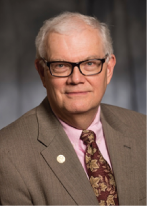Overview & Introduction of the Learning Environment
The importance and visibility of the learning environment has grown in recent years as various regulatory agencies focus attention on possible deficiencies in the learning environment (LE). The LE has been associated with stress and burnout, quality improvement initiatives, and curriculum design. This session will discuss the challenges in developing a conceptual framework for the LE, current limitations in measuring the LE, and initiatives designed to improve the LE.
The Learning Environment: An International Perspective
His session will review research related to learning environments, focusing on study designs and measurement methods, and will describe the growing interest in learning environments and their impact on professional development and well-being internationally.
The Learning Environment During Residency
The Accreditation Council for Graduate Medical Education (ACGME) established the Clinical Learning Environment Review (CLER) Program in 2012 to provide institutions that train residents and fellows with formative feedback to improve patient care while optimizing the clinical learning environment (CLE) in the 6 CLER Focus Areas (Patient safety, Health care quality (including health care disparities), Care transitions, Supervision, Fatigue management, mitigation, and duty hours, Professionalism).
In the Fall of 2018, the ACGME released its second CLER National Report of Findings, which details findings from the second set of visits to nearly 300 ACGME Sponsoring Institutions with 3 or more core residency programs. During the webinar, we will present findings from the report, as well discuss changes over time since the first cycle of CLER visits.
System and Case Studies
The Liaison Committee on Medical Education has recognized the importance of a healthy learning environment for students to optimally learn, to promote well-being, and to develop professionalism. Since 1990 the LCME has used the Graduation Questionnaire (GQ) to survey graduating medical students about their experiences and perceptions of their school’s leaning environment. Many schools’ GQ survey results have shown that students were less likely to report unprofessionalism and mistreatment while in school suggesting students are fearful of reporting while they are students. As a result, the LCME focuses on the learning environment in the accreditation surveys of medical schools.
Following Virginia Tech Carilion School of Medicine’s (VTCSOM) 2013 LCME accreditation visit, the school established the Learning Environment Advocacy Committee (LEAC), a multidisciplinary committee that serves as the clearing house for learning environment concerns from students. The learning environment concerns are reviewed by the committee, recommendations are made to investigate the concerns, and the concerns are addressed in the departments where the unprofessionalism or mistreatment occurred. The LEAC raises awareness of the importance of a healthy learning environment for students, faculty, residents, nurses and staff at VTCSOM and its clinical affiliate. This seminar will review the process of developing the LEAC, the activity of the LEAC since the committee was established, and the results of an organizational wide learning environment survey.



